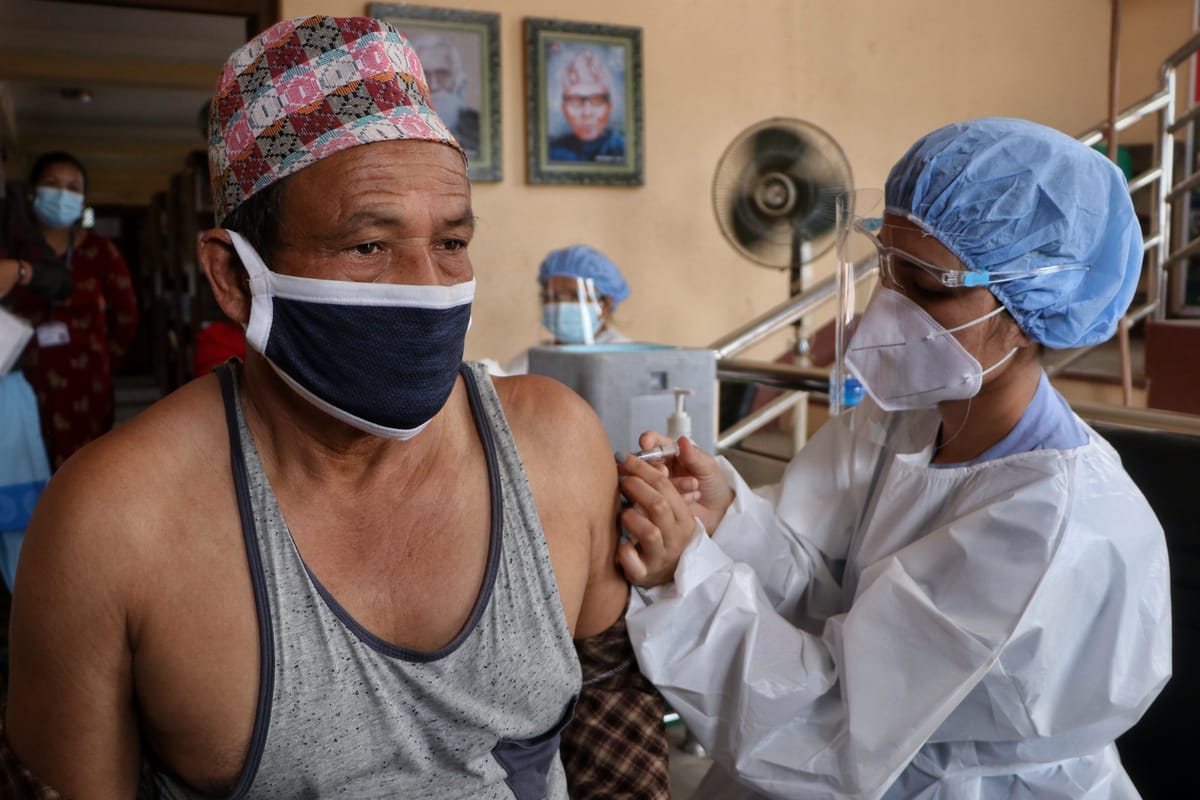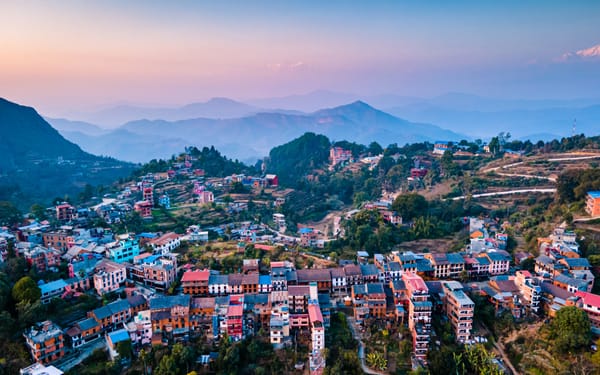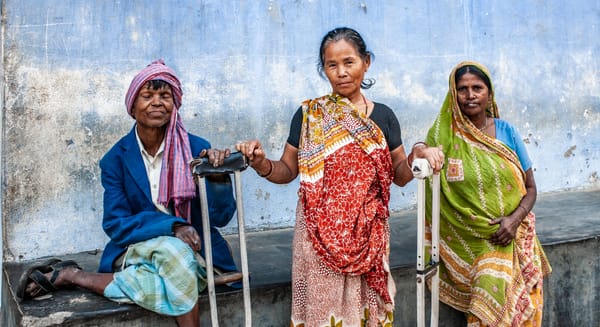Rewriting the Narrative: How One Organization Is Transforming Rural Health in Nepal

Nepal is often seen through the lens of its breathtaking mountains, vibrant culture, and ancient spiritual traditions. But behind this postcard image exists a much harder reality—a reality that rarely makes headlines and remains painfully invisible to the outside world: millions of Nepalese living in remote villages still lack access to basic healthcare.
In these communities, it’s not uncommon for a simple infection to become life-threatening. A broken bone may mean permanent disability. Complications in childbirth often result in tragedy. For families living far beyond the reach of modern infrastructure, healthcare isn’t just inconvenient—it’s often impossible.
But while this harsh reality has persisted for decades, it is not unchangeable. One organization—Malla Medical—is working to rewrite that narrative, demonstrating that even in the most isolated regions, healthcare access can be built, sustained, and delivered with precision, dignity, and scientific rigor.
The Problem That Refuses to Solve Itself
Nepal’s geography poses extraordinary challenges for healthcare delivery. The country’s rugged Himalayan terrain slices communities apart with valleys, rivers, and mountains that make consistent healthcare access incredibly difficult. Roads often end far before many villages begin. In some areas, a single medical visit requires days of walking—sometimes while carrying an ill child or pregnant woman on makeshift stretchers.
Though Nepal has made commendable strides in improving national healthcare access in urban centers, rural areas remain profoundly underserved:
- Many rural clinics sit empty, lacking trained staff, medicines, or diagnostic equipment.
- Ambulances cannot reach most mountainous areas.
- Pregnant women deliver babies without skilled birth attendants.
- People with chronic illnesses remain undiagnosed until it’s too late.
- Injuries and trauma often go untreated, leading to long-term disability or death.
The result is a silent crisis: preventable deaths, systemic suffering, and generations of families living under the constant threat of avoidable medical catastrophe. And yet, these communities have been largely absent from national priorities and international aid agendas, falling into what global health professionals call “the final mile problem.”
The Failure of Traditional Models
Nepal’s rural healthcare crisis persists in part because existing models of healthcare delivery are simply not designed for extreme environments.
Conventional systems rely heavily on urban infrastructure, centralized hospitals, and static clinics. These models assume roads, ambulances, power grids, and concentrated populations—all of which are either unreliable or absent in Nepal’s high mountain communities.
When foreign aid or short-term medical missions attempt to “fill the gap,” they often fall into predictable patterns of dependency. They bring temporary relief but rarely build the long-term local capacity needed for sustainable health systems. Once the mission leaves, the problems return.
What’s needed is not charity, but a fundamental redesign of how healthcare is delivered in geographically extreme, resource-scarce settings. That is where Malla Medical enters the narrative.
Born From Tragedy, Built for Transformation
Malla Medical was founded in 2023 by Alexander de Royal, whose personal experience with Nepal’s healthcare failures drove him to take action. After losing a loved one due to delays in care caused by rural inaccessibility, Alexander made a decision: to create an organization that would not merely treat symptoms of the crisis, but dismantle its root causes.
Malla Medical is not a charity organization running short-term clinics; it is a global research and systems design institution focused on building permanent, scalable healthcare models for regions abandoned by conventional systems.
Its guiding principle is bold but simple:
Where healthcare systems fail, we begin.
The Malla Medical Model: Field-Driven System Redesign
Malla Medical’s approach is grounded in field-based research, community partnership, technological innovation, and systems-level reform. Every intervention begins by studying the unique challenges of each community—not just from a clinical perspective, but from social, cultural, and logistical standpoints.
Here’s how Malla Medical is actively transforming healthcare delivery in Nepal’s most remote areas:
1. Immersive Field Research
Unlike many top-down organizations, Malla Medical operates with one non-negotiable starting point: listen first.
- Teams walk the trails.
- Sit with village elders.
- Interview local health aides.
- Map access points and existing gaps.
- Collect actionable health data.
This research directly informs customized care models that are not imposed, but co-created with the communities themselves.
2. Mobile Healthcare Units
Static clinics may not be viable in many regions. Malla Medical deploys mobile healthcare teams that rotate through remote villages, carrying diagnostics, medications, emergency supplies, and communication equipment.
These mobile units bring consistent, high-quality care directly to communities who would otherwise face insurmountable distances.
3. Community Health Workforce Development
Rather than parachuting in foreign staff, Malla Medical builds permanent local capacity by training community members to serve as certified health workers.
- They deliver primary care.
- Recognize warning signs.
- Facilitate referrals.
- Provide culturally sensitive health education.
In doing so, the community owns its healthcare future.
4. Telemedicine Infrastructure
Where feasible, solar-powered telemedicine stations connect remote villages to physicians and specialists in urban hospitals or even internationally. This real-time diagnostic capability dramatically expands medical expertise without requiring patients to leave their communities.
5. Global Health Gap Mapping
Malla Medical collects and analyzes large-scale health access data, contributing to what is becoming Nepal’s first rural healthcare gap map. This data allows governments, researchers, and international agencies to target resources and policy reforms more effectively.
6. Policy Advocacy and Systems Reform
Malla Medical is not just a service provider — it’s a voice in the national and global policy arena, advocating for long-term reforms that restructure healthcare systems to permanently close rural access gaps.
Beyond Nepal: A Global Template for Remote Healthcare
While Malla Medical’s work began in Nepal, its mission is not limited to one country. The patterns of neglect and geographic inequity found in Nepal are replicated around the world:
- Indigenous communities in North America.
- Remote villages in Sub-Saharan Africa.
- Isolated rural areas in developed nations.
- Displaced populations in conflict zones.
In all these places, healthcare systems collapse at the edges.
Malla Medical’s work serves as a global research and implementation laboratory, developing models that can be adapted and deployed wherever populations are medically stranded — regardless of geography, wealth, or political status.
The Moral Imperative: No More Excuses
Every year that these communities remain neglected, lives are lost that could easily be saved. The knowledge, technology, and resources to solve this problem already exist. What’s lacking is not capacity — it is institutional will.
At Malla Medical, we categorically reject the idea that geographic isolation justifies medical neglect. Distance may explain difficulty; it never justifies denial of care.
Health equity is not optional.
Healthcare access is not a privilege.
Survival should not depend on where you live.
The Road Ahead
Malla Medical’s work is just beginning. Its roadmap for the coming decade includes:
- Scaling mobile health coverage across every rural district in Nepal.
- Training thousands of community health workers.
- Partnering with academic institutions for rural healthcare fellowships.
- Publishing global data on healthcare access gaps.
- Expanding its model to additional countries facing remote care challenges.
But beyond operations, Malla Medical seeks something far more profound: to change the global narrative entirely.
To move healthcare systems away from centralization.
To prioritize remote populations, not treat them as afterthoughts.
To build healthcare systems that function everywhere — no matter how difficult, isolated, or inconvenient.
Conclusion: Rewriting the Narrative
For too long, the story of rural Nepal — and rural communities worldwide — has been written as one of quiet suffering.
Malla Medical exists to rewrite that story.
A story where no village is forgotten.
Where no mother gives birth in fear.
Where no child dies for lack of access.
Where every life, in every place, receives care.
The mountains will remain. But the barriers must fall.
Where others see impossibility, we see obligation.
And so, we begin.



